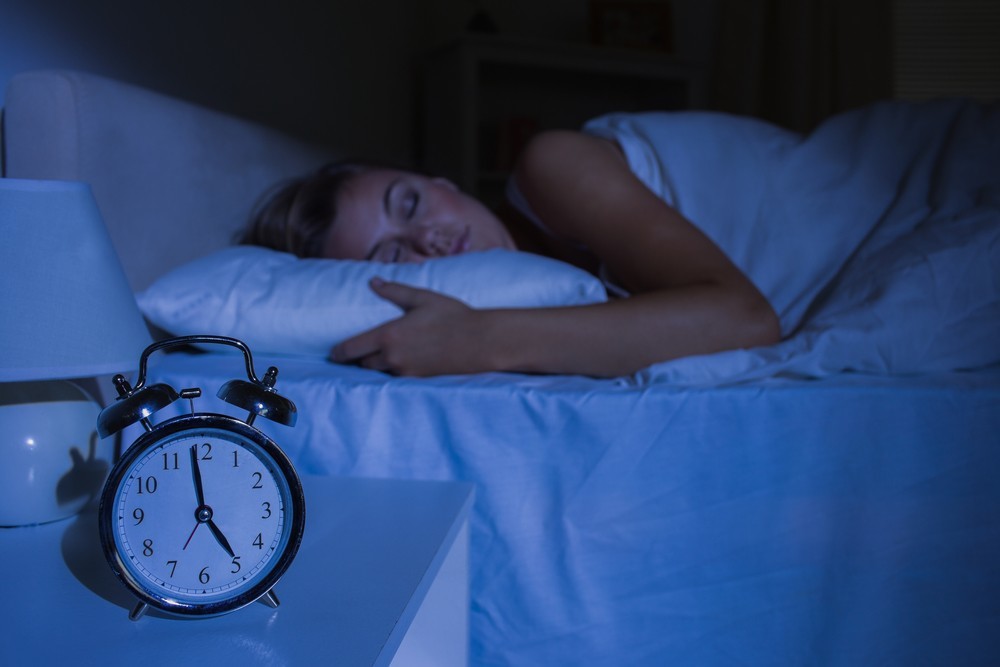If you’re struggling with high blood pressure, you’re probably aware it’s important to eat a healthy diet and get regular exercise. But did you know your sleep plays a role in contributing to high blood pressure?
Though small, a study by Mayo Clinic researchers found when subjects went without sufficient sleep for a prolonged period, they also registered higher blood pressure numbers during the night.
The researchers presented the study’s findings at the American College of Cardiology’s 64th Annual Scientific Session in March.
The Study
In the study, eight healthy, normal weight participants aged 19 top 36 underwent a four-day acclimation before being split into two groups.The first group slept just four hours each night for nine days and the other group slept for nine hours during the nine days. Both groups then completed three days of recovery. Each of the subjects’ blood pressure was monitored 24 times throughout the study.
While the well-rested participants averaged a blood pressure of 105/57 mm Hg, those with just four hours saw a blood pressure at 115/64 mmHg during the nighttime.
Sleep and Blood Pressure
“We know high blood pressure, particularly during the night, is one of the major risk factors for heart disease, and Americans typically do not get enough sleep,” lead author Naima Covassin, Ph.D., said in a statement.
While sleep apnea has long been considered a factor related to high blood pressure, sleep deprivation is getting more attention.
According to the National Sleep Foundation, a drop in sleep quantity and quality related to sleep apnea can lead to hypertension and heart disease. It can also cause mood and memory problems.
Sleep plays a role in your blood pressure because a quality night’s sleep helps the body regulate stress hormones and helps to keep the immune system healthy. A loss of sleep over time damages the body’s ability to regulate stress hormones and can lead to high blood pressure.
Getting seven to nine hours of sleep each night can help in treating and preventing high blood pressure.
Sleep offers several health benefits alongside the benefits it offers your blood pressure. Getting a healthy amount of sleep improves your memory, curbs inflammation, increases creativity, improves athletic performance, sharpens your attention and focus, improves your ability to lose weight and helps you better maintain a healthy weight, lowers your stress levels and boosts your mood.
Even partial sleep deprivation can cause problems when it comes to your blood pressure. For those who get less than six hours of sleep a night, there is also an increased risk for high blood pressure and obesity.
Research has found partial sleep deprivation is linked to obesity and can disrupt appetite and metabolism regulating hormones.
Tips for Getting a Better Night’s Sleep
Consistency Helps
A consistent bedtime helps your internal clock and can optimize your sleep. Set a realistic bedtime that works with your schedule.
Avoid Oversleeping
Getting extra sleep can be tempting, especially on the weekends, but oversleeping for even just a couple hours can disrupt the internal clock. If you do catch yourself staying up too late, opt for a nap later in the day rather than sleeping in.
Be Careful with Naps
Napping can be a good way to recharge but can also disrupt your sleep pattern at night. If you really struggle to fall asleep, you should probably avoid naps altogether.
Pay Attention to the Light
Melatonin is a naturally occurring hormone that’s controlled by exposure to light. Your body produces more melatonin when it’s dark. Getting plenty of light in the morning will also help you wake up faster.
Avoid the Screen
Light from the TV, a laptop or phone can interfere with your sleep particularly because of the blue light emitted from electronic devices. By turning the brightness down, you can reduce the effects. However, avoiding screens two hours before bedtime will help the most.
Get Regular Exercise
Getting regular exercise increases your metabolism and raises your body temperature while activating cortisol. Exercising helps you utilize stored energy so you feel sleepier when it is bedtime. Be careful about when you exercise, though. Moderate to vigorous exercise within three hours of going to bed may make it more difficult to fall asleep.
Wind Down
Take time to wind down before going to bed. This process will help you clear your mind. Stress and worrying can make it difficult for you to fall asleep.
Get Help When Needed
If you’ve tried everything, but still struggle to get a good night’s rest, you may have a sleep disorder and may need additional treatment. If you’re feeling persistent fatigue, snore loudly, struggle to fall and stay asleep, have frequent morning headaches or fall asleep at inappropriate times, visit your health care professional to seek more help in getting quality sleep.
L-arginine Plus
If you’re struggling with blood pressure, try out L-arginine Plus.
Resources:
http://www.huffingtonpost.com/2015/03/18/sleep-blood-pressure-health_n_6881274.html

